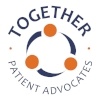
Receiving a cancer diagnosis can be frightening. It’s hard to know what to do next.
Here are recommendations for some important next steps that include links to qualified sources where you can discover additional helpful information.
Share
Consider sharing your diagnosis with family and friends. Before you begin, find a way of telling them that is most comfortable for you. How you start the conversation can help set the tone for the rest of your talk. The American Cancer Society’s After Diagnosis guide offers tips on how to have those conversations with adults and children. Those supporting you may find "The Ring Theory" helpful for conceptualizing how they can better support you.
Repeating your story and health updates can be tiring. One way to keep people updated is have someone create a website for you or sign up for a service such as Caring Bridge . These allow you or your designee to provide periodic updates to a group of people you choose to communicate with.
If people offer you help, give them something specific to do. You might not have anything for them to do right now, but keep them in mind if you need their help later on. Sites like Lotsa Helping Hands are a great and easy way to coordinate assistance. Consider asking someone you trust to be the main coordinator for the site to free up more time for you to focus on healing.
Become Informed
It’s important that you understand the basic information about your diagnosis, treatment, and prognosis. The Mayo Clinic and American Cancer Society’s After Diagnosis guide provide lists of questions to ask your health care team.
If you want to do some research on your own, in addition to the American Cancer Society and the Mayo Clinic, the National Cancer Institute also offers a wide range of information.
There are also numerous organizations dedicated to specific types of cancer. One resource to explore is the National Cancer Institute’s list of 109 organizations. This same site also has lists of services such as support groups, counseling, and educational programs.
If you choose to do online research, read my post, Researching Quality Medical Information on the Web to make sure you’re getting information from reliable sources.
Build Your Medical Team
Your team will likely include your primary care doctor, cancer specialists, oncology nurse, social worker, your support network and a patient advocate, if you hire one. Ideally, one hopes to have their team include specialists who are experts in the type of cancer you have, and who listen and are supportive. It is always worth considering a second opinion before embarking on treatment. You may wish to ask your primary who they would recommend for a second opinion, or you may find options through specialty cancer sites, or through research a patient advocate does for you.
You may be interested in combining traditional medicine with an integrative or holistic approach to your treatment. The National Institutes of Health's National Center for Complementary and Integrative Health paper, "The Mind and Body Approaches for Cancer Symptoms and Treatment Side Effects," explains the research and outcomes of certain types of integrative treatments.
Seek Support
It can be challenging to understand and remember what you’re told during a doctor’s visit or when you’re receiving treatment. Therefore, consider asking a family member or friend to attend visits with you to take notes and write down your questions in advance of the appointment. Or you could hire a health care advocate. An advocate with a medical background or experience with cancer patients can not only “translate” what you’re being told, but also help ensure you understand what you’re being told.
You may find it helpful to talk with other people who have experienced a cancer diagnosis. In addition to the National Cancer Institutes’ list of support groups, the American Cancer Society provides links to various patient programs. Specific cancer organizations also have mentors, such as the Bladder Cancer Advocacy Networks "Survivor to Survivor Program."
If you are feeling depressed or anxious, let your medical are team know. These are not uncommon feelings and your care team can both help support you, as well as refer you to additional resources, as needed. Depression and anxiety can interfere with your ability to get the care you deserve and thus, deserve early recognition and care.
Create a Financial Action Plan
Understanding and planning for the financial aspects of your treatment will allow you to focus on your health rather than worrying about possible unexpected financial burdens.
To help you get started, the Mayo Clinic recommends getting answers to these questions:
- Will I have to take time away from work?
- Will my friends and family need to take time away from work to be with me?
- Will my insurance pay for these treatments?
- Will my insurance cover the cost of medications?
- How much will my out-of-pocket costs be?
- If insurance won't pay for my treatment, are there assistance programs that can help?
- Do I qualify for disability benefits?
- How does my diagnosis affect my life insurance?
Where can you find the answers? The American Cancer Society has a list of resources to help you work through financial planning. Your medical team may also have a list of people who can help you with your financial questions or needs.
For information on navigating through your insurance plan, see my posts Three Common Reasons for Surprise Medical Bills and Five Words to Help You Understand Insurance Claim Forms.
Resume Normal Activities
Keep up your normal routine as much as possible. That includes maintaining a healthy diet and an exercise program tailored to your current abilities.
Take care of yourself during this time. How you choose to do that will be as individualized as your treatment plan. Here are some suggestions from the Mayo Clinic:
- Practice relaxation techniques
- Share your feelings honestly with family, friends, a spiritual adviser or a counselor
- Keep a journal to help organize your thoughts
- When faced with a difficult decision, list the pros and cons for each choice
- Find a source of spiritual support
- Set aside time to be alone
- Remain involved with work and leisure activities as much as you can
Organize Your Information
You can tell there is a lot of information you’re going to be dealing with; such as, your test results, treatment plan, appointment schedule, questions for your medical team and their answers, medication lists, and insurance documents. Decide how you’re going to organize and update the information. Whether that’s with online tools or in a notebook, set it up now. You can modify it over time as you need to.
In Conclusion
While a cancer diagnosis can be shocking, there are strategies you can take to help manage your diagnosis and next steps. If you've experienced this and have additional recommendations, please add them to the comments so that others can benefit from your expertise.



.gif?width=200&name=NAHAC-Member-Badge200x112+(1).gif)


